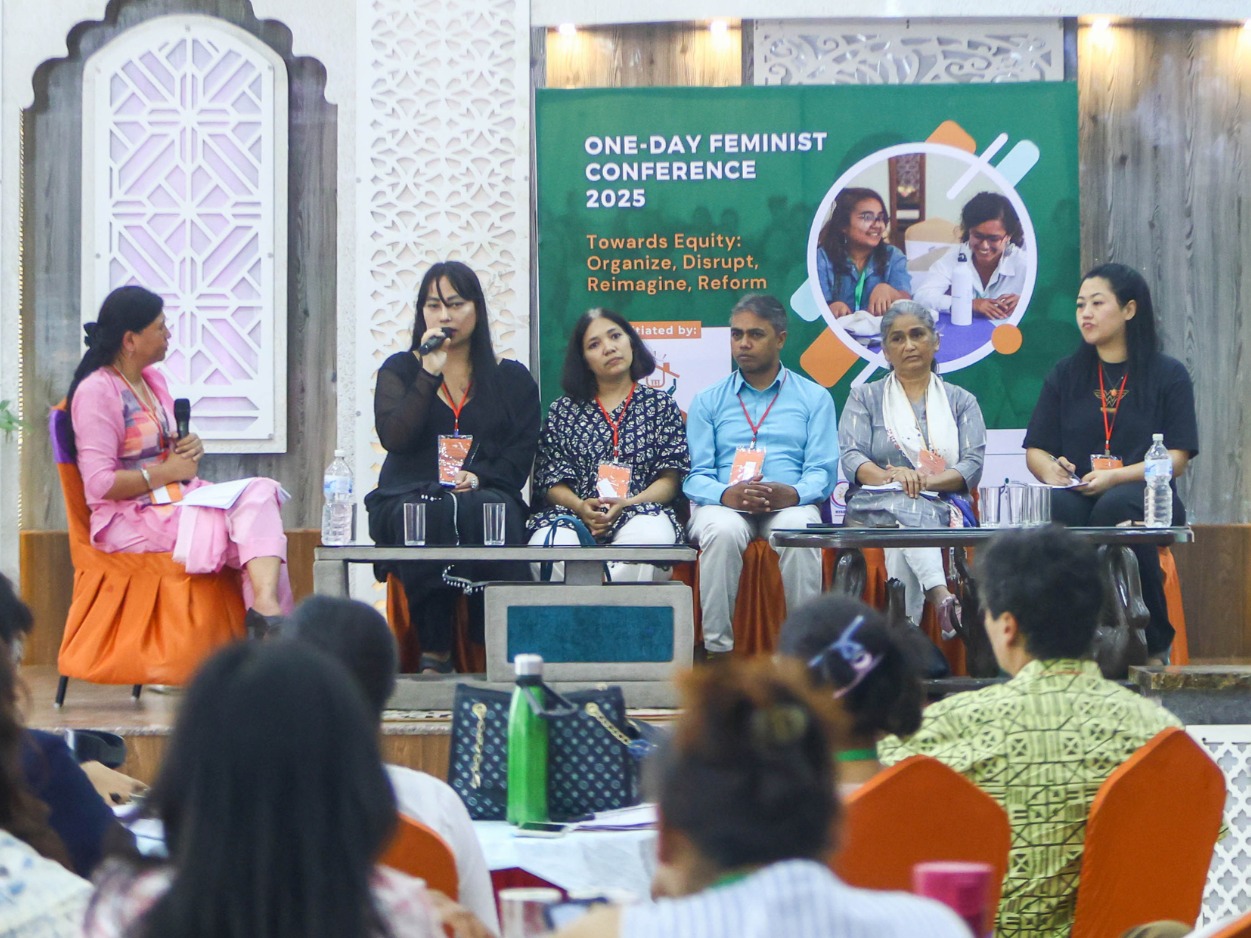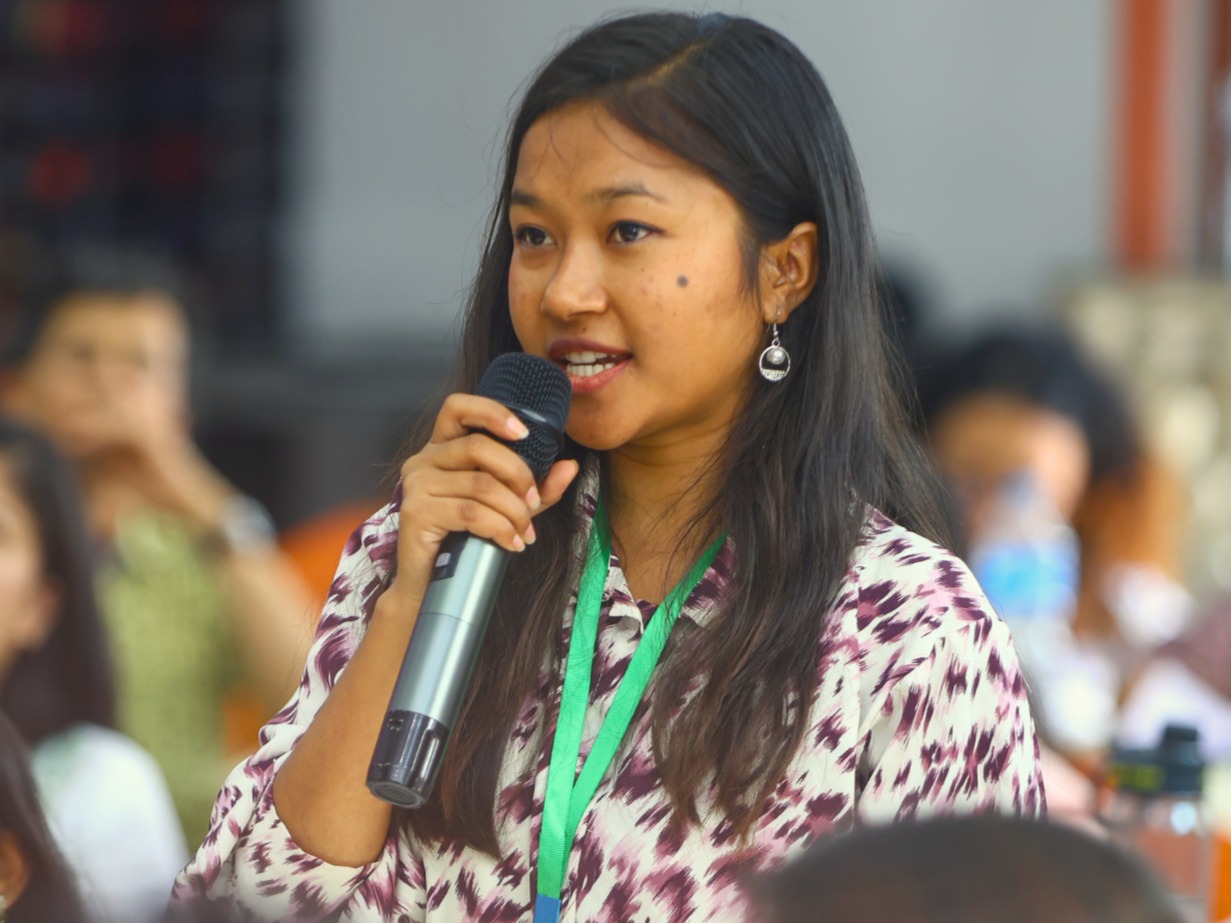Ujyalo Foundation’s feminist conference on July 5 united 122 leaders to explore care work, climate justice, and equity through plenaries, parallel sessions, human stories, and creative activism.

July 11, 2025
Kathmandu, Nepal

Engaging with "Affirmation Cards" at the conference.
Photo: One-day Feminist Conference 2025
The One-Day Feminist Conference 2025, held on July 5, brought together over 120 activists and leaders from across Nepal who discussed at length how feminist movements can organize, disrupt, and reform systems for justice and equity.
This annual conference was hosted by Ujyalo Foundation, in partnership with 12 organizations, at Dipjyoti Banquet in Boudha, Kathmandu.
This year’s theme, “Towards Equity: Organize, Disrupt, Reimagine, Reform,” focused on how people can work together to challenge injustice and build a fairer, more caring society. The program featured plenary sessions, group discussions, side events, and interactive spaces for learning and reflection.
The event began with welcome remarks from Sharon Adhikari and Keshu Khadka, board members of Ujyalo, followed by a welcome address from Anjila Shrestha, President of Ujyalo, emphasizing the importance of collective movement-building.

Panel discussion at the One-day Feminist Conference
Photo: One-day Feminist Conference 2025
Powerful keynote speakers included Amuda Mishra, Founder and Executive Director, who spoke about the power of women organizing “not to be saved but to lead”, setting an urgent tone for the day’s discussions. She called on fellow feminists to organize care, disrupt injustice, reimagine leadership, and reform systems.
The opening plenary, “From Policy to Practice: Integrating Care Work into Climate Action,” explored how unpaid care work intersects with climate vulnerability and policy. Panelists—including Dibya Devi Gurung, Anita Lama, Rajan Paudel, and Kripa Basnyat- discussed how Nepal’s 16th National Plan is beginning to recognize care work as integral to climate resilience, calling for policies that are both gender-responsive and socially inclusive.
The discussion focused on how care work and climate change have now been included in Nepal’s 16th National Plan.
Following that, the conference featured four parallel sessions that unpacked feminist perspectives on political representation, land rights, climate justice, and movement resourcing. Each session, led by partner organizations, highlighted the structural barriers facing marginalized communities and emphasized the need for intersectional, community-driven solutions.
The closing plenary, “Reimagining Democratic Futures: Beyond 2084 Election,” moderated by Indu Tuladhar, Gender Justice Expert, explored how democratic participation must extend beyond electoral cycles to include everyday activism, inclusive policymaking, and community-led leadership. Panelists of the closing plenary session reflected on the need to challenge tokenism and build political spaces grounded in justice and care.

Participant speaking during the feminist conference
Photo: One-day Feminist Conference 2025
The Human Library offered a powerful space for sharing lived experiences of resistance, healing, and feminist leadership, fostering deeper reflection on identity, intersectionality, and collective resilience.
While the conference lasted just one day, its message aimed to support long-term change across Nepal’s development, policy, and feminist landscapes. Side events included community art installations, message boards, and memory-sharing spaces curated by various partner groups.

By sharing valuable information and sparking inspiration, we aim to foster growth, innovation and brighter opportunities for future generations.
Contact us